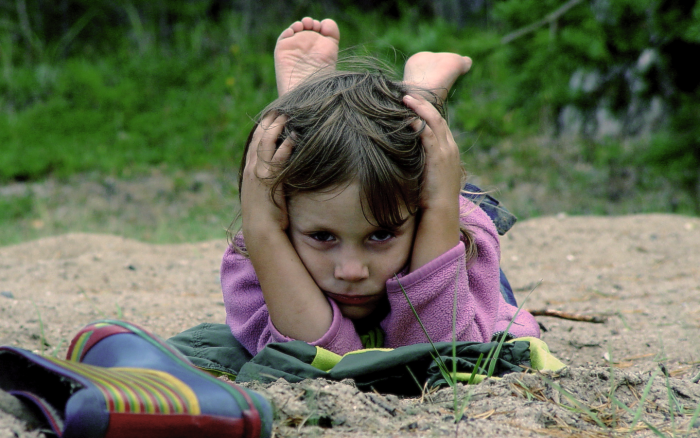Yesterday, I picked my four-year-old up from preschool.
She was visibly upset—fighting hard to hold back her tears. I asked her what was wrong, why she was crying, but she was hesitant to respond. She finally told me that she received a “sad face” at school.
The next day, I asked the teacher what my daughter meant. The teacher pointed to a wall filled with whiteboards. Each kid had their own board, and every hour the teacher would place a happy face or sad face to correspond to how they were feeling at that time. She showed me my daughter’s board, which was filled with smiley faces.
My daughter didn’t understand that the other sad faces were not put on her chart, but another child’s with the same name as her. I explained this to my daughter, but it didn’t help. She was a mess.
On the drive home, I told her if I was her teacher, I would always give her a smiley face because she is amazing. Then I proceeded to tell her she is my favorite person in the entire world.
I try my hardest not to call her a “good” girl or a “bad” girl. And I knew this moment in her life was crucial. Labels set children up to become their worst inner critic. It is essential to understand this in order to build up their personality.
Labels only bring down a child’s confidence. I have seen it time and time again. When a child is told they are “bad,” it breaks them up inside; they begin to believe they are inherently bad and not good enough. This logic also bleeds into adulthood.
I have personally been aware of my own logic with this. If I mess something up, I will turn on myself and begin with the name-calling.
I remember so much inner dialogue that went something like this: “Oh my god, Celina, you are so stupid. You can’t do anything right. You can’t do this.”
Please remember, as parents, a child is the most precious thing in the world. They are the only creatures capable of unconditional love as deep and infinite as the ocean. It is our responsibility to shape them from the bottom up. These crucial moments can define their logic for the rest of their lives.
If we want a kinder future, we must remember to show our children what that kindness looks like. We can rebuild and reshape any relationship with word choice.
When my daughter is behaving inappropriately, I tell her that it is not okay and explain why. I tell her that she must listen to get rewards. However, I never tell her she has to be a “good” girl all the time. I know that she will encounter people who believe that women are meant to be quiet, polite, and obedient. But I don’t want her to see that at home and believe it to be true.
Today, I explained to my daughter that the board is not there to label her as good or bad. I explained that the faces were there to represent how she felt at that current time. I told her that it is perfectly fine to be sad or happy. Everyone is sad sometimes—things happen. But it doesn’t make you a bad person. She agreed with me and said, “Yes, mom, things happen. I was sad yesterday, and that is okay.”
Later, I found out the school was punishing kids who received sad faces on their chart. At this point, I was enraged. If a child is sad that day, they don’t get a toy out of the treasure box. Can you imagine how a child must feel if they watched everyone else get a toy and they didn’t get one because they were sad or upset?
I can understand reward-based teaching for a child who is behaving inappropriately or acting out. However, I truly believe that we all have a basic right to feel sad or even mad. This shouldn’t dictate labels or punishments unless the action provoked by those feelings are inappropriate behaviors.
A week after the first incident, I went to the school and kindly asked that a smiley face is always put on my daughter’s chart. I told them if they have a problem with her behavior, to please contact me, and I will take care of it.
The school never had to contact me because my daughter knows how to treat her teachers and peers. There are times when she acts out at home and gets in trouble.
However, in this case, she was just a highly sensitive girl in a cruel and unjust world. I truly believe that a lot of children are that way. We just need to give them a free platform for their feelings.
This was such an important lesson for me as a mom and an affirmation that I need to keep teaching her these things.









Read 7 comments and reply